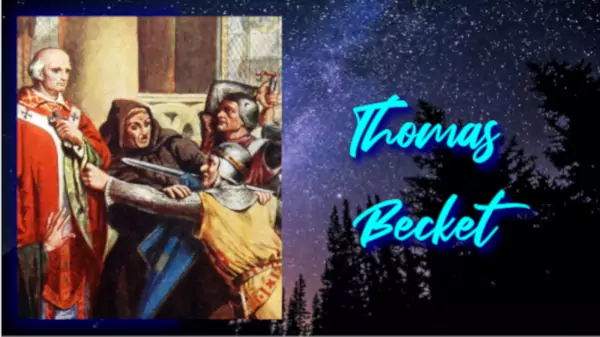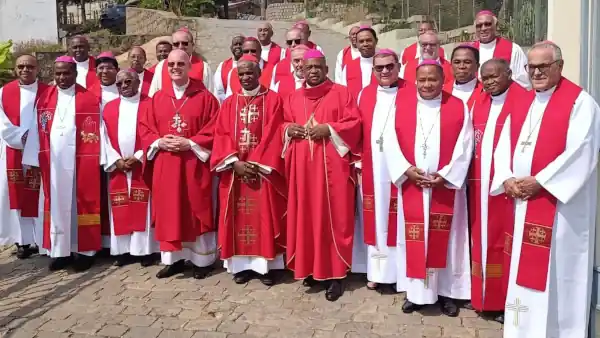29 December - Thomas Becket is born in 1117 to a wealthy family in London. With the support of his family, he was able to continue his studies in Paris. He worked with Thibaut, Archbishop of Canterbury, who sent him to Rome from 1151 to 1153 and to the schools of Bologna and Auxerre where he trained as a lawyer.
[audio src="/images/sounds/saint-20201229.mp3" background="#0099ffff"]
He later frequented Henry II, who appointed him Chancellor of England, after being appointed Archbishop of Canterbury by the Archbishop. Henry II hoped that Thomas would be malleable at will and in May 1162 he appointed him Archbishop of Canterbury, serving as Chancellor and Bishop of seventeen of England's nineteen dioceses. Thomas Becket was ordained priest and bishop in two days, and since then he has fought for the rights of the Church.
In 1164, Henry II issued a decree called the "Constitution of Clarendon", which stated that the state would return to its old ways, in opposition to Canon Law. Thomas Becket immediately objected. His fellow bishops, such as those of York and London, did not support him and he was exiled to France for six years, from 1164 to 1170. When he returned to England in July 1170, the conflict began again because those of his archdiocese opposed him and Henry II took the opportunity to declare: "No one can remove this priest from my presence". On the night of 29th December 1170, four Norman soldiers came to the cathedral to kill Thomas. His martyrdom took place as follows:
On December 29th, around eleven o'clock, four men arrived, threatening to kill him, but he replied: "I am not running away from death, I am ready to receive it". After dinner, in the church, at the hour of Compline, the four men came in force. The monks present tried to push them back, but Thomas Becket said: "We will not defeat the enemy with violence, but by suffering. I am ready to sacrifice myself for the Church I defend". The assailants entered, searched, but he surrendered to them. "Flee, they said, or die". But Thomas Becket replied: "I will not flee, my desire is to give my soul to those to whom the Saviour has shed his blood". Thomas Becket was beaten by the intruders within the church itself, and he said: "I die voluntarily for the name of Jesus and for the protection of the Church". Thomas Becket was immediately revered by the people, and because of the miracles obtained through his intercession, he was canonised by Pope Alexander III on 21 February 1173.








